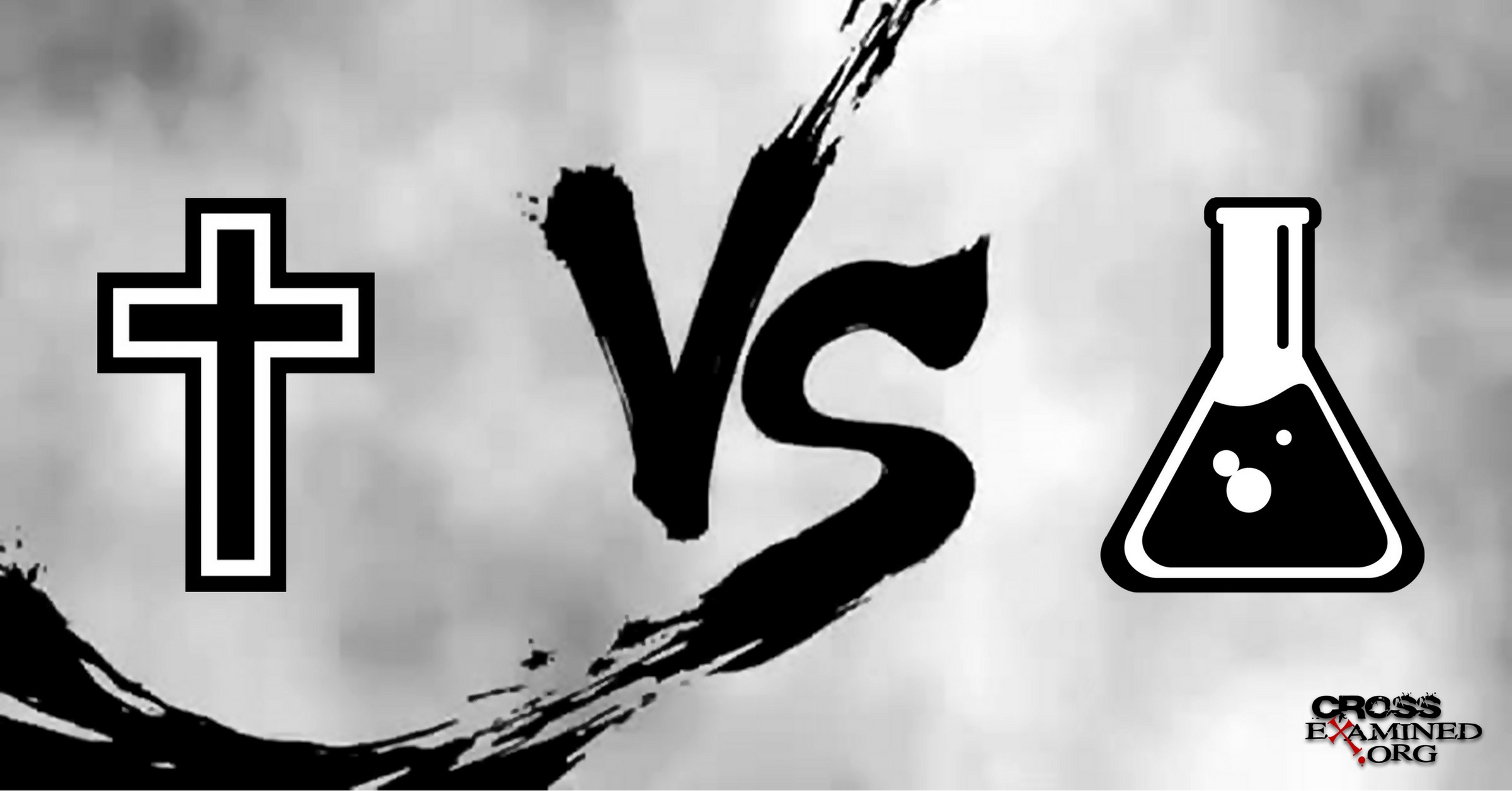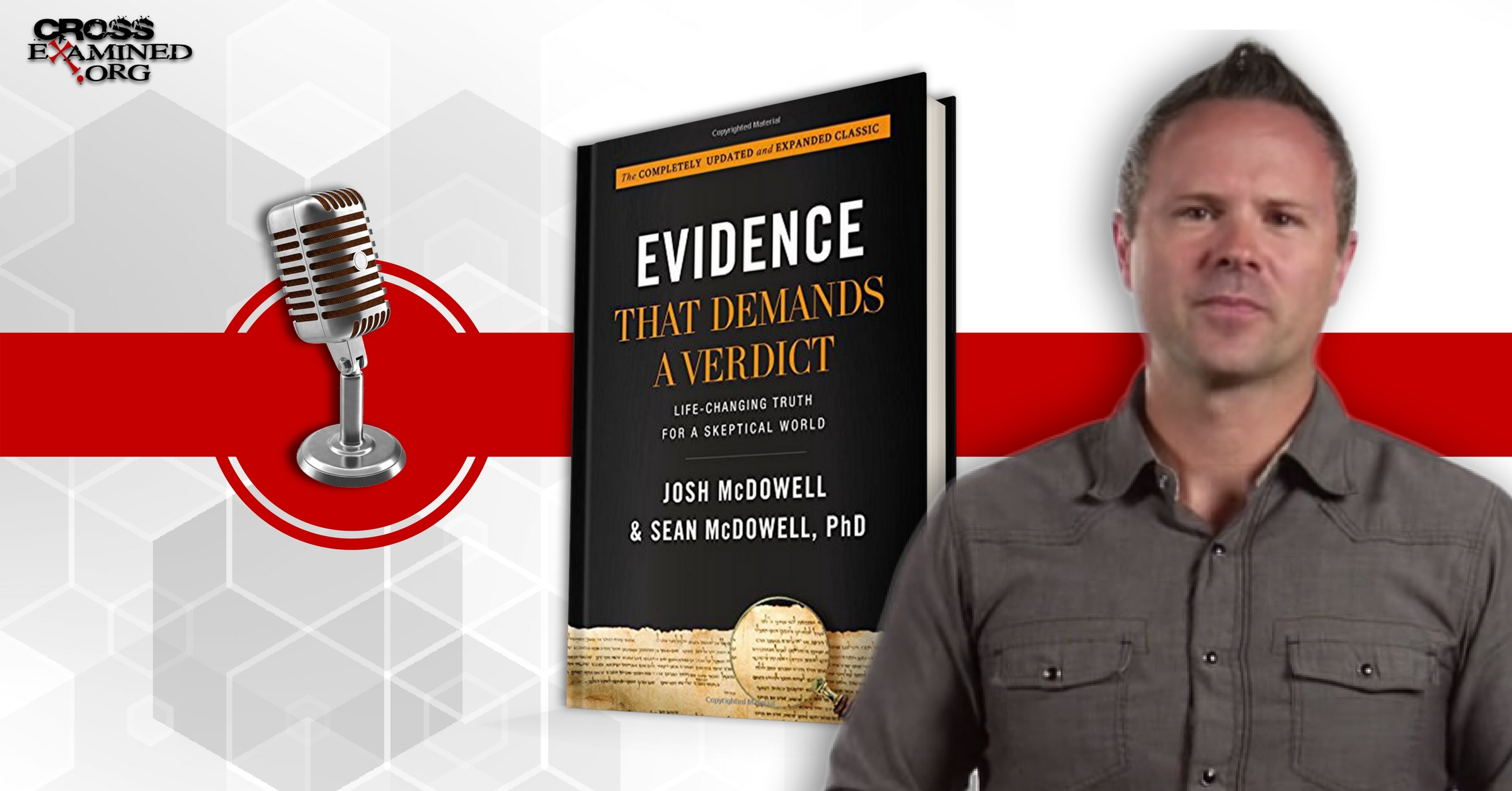By Jacobus Erasmus
In a recent blog post, Professor Keith Parsons offers three reasons for why (he thinks) the soul does not exist. (You might recall that Parsons debated William Lane Craig in 1998). Since Parsons’ objections to substance dualism (for simplicity, I will hereafter refer to substance dualism simply as ‘dualism’) seem rather common among lay atheists, his objections are worth evaluating. Let us, then, evaluate Parsons’ blog post.
The Burden of Proof
Before offering his three objections to dualism, Parsons argues that the burden of proof falls on the dualist. According to Parsons, the non-dualist (i.e, the person who believes the soul does not exist, such as the physicalist or property dualist) does not have to defend their position because ‘the burden of proof falls entirely on those who support the existence of spiritual souls.’ Why does Parsons think this? Well, for two reasons. First, he argues that, since the brain can perform mental functions, one’s default position should be to assume that souls do not exist. He writes,
Well, first, let us consider what, I presume, is known to everyone: We know that certain configurations of matter–those configurations we refer to as ‘human beings,’ for instance–are capable of performing mental functions. They think, feel, perceive, imagine, desire, will, believe, and so forth. If, then, certain configurations of matter can perform mental functions and possess mental properties, the parsimonious, spontaneous, and natural assumption would be that matter, when organized in suitable ways, can perform mental functions and possess mental properties.
It seems perverse to make the opposite assumption, namely that material beings cannot think, and that therefore their mental functions and properties must be due to the operation of something non-physical, a soul perhaps. … Therefore, the burden of proof should be on those who say that matter is incapable of mental functions or of possessing mental properties, and that these must instead be due to something non-material.There are several problems with this argument. In the first place, Parsons first assumes non-dualism in order to argue that one should first assume non-dualism, and this is viciously circular (I use the term ‘non-dualism’ as an umbrella term to refer to all views that claim that the soul does not exist, such as physicalism, materialism, and property dualism). When Parsons claims that it is the brain that can ‘think, feel, perceive, … and possess mental properties’, he is simply describing non-dualism. Dualism, on the other hand, states that it is the soul (or the immaterial mind or self), and not the brain, that feels, perceives, has mental properties, etc. Thus, Parsons first assumes non-dualism, and then he concludes on the basis of this assumption that one should first assume non-dualism (what a messy argument!)In the second place, it is simply false that everyone ‘knows’ that brains can feel, believe, have mental properties, etc. What everyone seems to know is that there is a correlation between one’s brain and one’s mental life. For example, when one recalls a memory, electrical activity occurs in certain regions of the brain. However, this correlation relation is different to an identity relation; that the brain correlates to the mind does not imply that the brain just is the mind. Furthermore, I have a deep intuition that I am not just physical stuff, that I am more than my body, that my mind is not identical to my brain. Most people I have spoken to share this intuition. Hence, contra Parsons, not everybody thinks (or ‘knows’) that non-dualism is true. Indeed, if dualism seems intuitive to most people, then dualism should be the default starting position.
Parsons’ second reason for why the burden of proof falls on the dualist is that neuroscience (supposedly) presupposes the following principle:
- The brain is sufficient for all mental activity.
Parsons explains,
The second reason for putting the burden of proof on the soul-theorist is that, surely, by now, the heuristic assumptions of neuroscience have gained some degree of authority. As I mentioned earlier, a regulative assumption of all the sciences that study mind and brain is that the brain is sufficient for all mental activity. … When a program of inquiry has produced hard, reproducible, and important results, as has neuroscience, then this would warrant prima facie acceptance of the heuristic principles that have guided such research. The burden of proof should therefore fall on those who reject the assumption of the sufficiency of the brain and instead invoke non-physical entities.
Unfortunately, Parsons’ argument above is misleading. To make such a bold claim as ‘neuroscience presupposes (A)’, one must provide some evidence for the claim. Parsons does not do this. He does not reference any neuroscientist that explicitly states that (A) is the heuristic principle of neuroscience. Nor does he reference any study that supports his argument above. Nor does Parsons interact with the recent scholarly work that shows that Parsons has got it completely wrong. For example, in their recent paper titled ‘Neuroscience: Dualism in Disguise’, Riccardo Manzotti and Paolo Moderato (2014) persuasively argue ‘that most of current neuroscientists, contrary to often-heralded physicalist credo, embrace dualism … [and, furthermore] that the implicit assumptions adopted by most neuroscientists invariably lead to some sort of dualistic framework’ (Manzotti and Moderato, 2014:81). Contra Parsons, most neuroscientists assume dualism and, thus, according to Parsons’ argument, the burden of proof should fall, not on the dualist, but on the non-dualist.
Therefore, Parsons’ two arguments above fail. It should be noted, moreover, that when it comes to a controversial topic (such as free will, the nature of time, the mind-body problem) the burden of proof falls on those on both sides of the debate. I take this to be obvious, and it would be disingenuous to deny this. Furthermore, I find it odd that Parsons first argues that he, as a non-dualist, does not need to argue for non-dualism, and then goes on to argue for non-dualism. One would expect Parsons to engage instead with the arguments for dualism, which he does not do. This gives the impression that Parsons does not really believe that the burden of proof falls completely on the dualist. Let’s turn now to Parsons’ three objections to dualism.
Objection 1: The Interaction Problem
Parsons’ first move against dualism is to appeal to the interaction problem, which states that it is difficult to see how a non-physical, immaterial entity, such as a soul, can causally interact with a physical entity, such as a brain. Now, Parsons does not describe the interaction problem in any detail. Nevertheless, the interaction problem usually runs similar to the following:
(A1) A soul can interact with a body only if the interaction is in virtue of the transference of motion from the soul to the body.
(A2) Transference of motion from a soul to a body is impossible (because a soul does not have motion).
(A3) Therefore, a soul cannot interact with a body.
The idea behind (A1) is that, in order for some entity A to causally interact with some physical entity B, a transference of motion from A to B must occur through, for example, collision or impact. Now, many philosophers, such as Jonathan Barnes, Joshua Hoffman, and Gary Rosenkrantz, have noted that (A1) presupposes the following erroneous principle:
(A4) For any two objects A and B and some property F, if A causes B to be F, then A is F.
According to (A4), if a soul causes a body to be in motion, then the soul must be in motion. It is, thus, easy to see why (A1) presupposes (A4). Unfortunately, (A4) is demonstrably false. A lump of clay, for example, can be caused to be square by a non-square object, such as a hand or a rolling pin. Or consider the Law of Gravity, according to which two pieces of matter can accelerate toward each other (or gain motion) without motion being transferred from one to the other. Hence, since (A4) is false, (A1) is false.
What does Parsons have to say in response to the above mentioned philosophers? Not much. Parsons concedes that there are (or may be) causal relations in the physical universe that are inexplicable brute facts. However, he argues that
the brute facts of physical theory may be there, but they are down very deep. With soul-theory, the incomprehensibility is right up front and on top. … It matters where you put your brute facts.
This response does not deal with the central issue about (A1) or (A4). In fact, this response is nothing more than an unjustified assertion. Parsons is essentially stating (without defending) the following argument:
(B1) A brute fact that lies at the end of a very long chain of deeply satisfactory explanations is acceptable.
(B2) If soul-body interaction is a brute fact, it does not lie at the end of a very long chain of deeply satisfactory explanations.
(B3) Therefore, it is unacceptable to claim that soul-body interaction is a brute fact.
As noted above, Parsons simply states these premises without defending them. But why, exactly, should it matter where a brute fact is situated in a chain of explanations? And why, if soul-body interaction is a brute fact, would it not be situated at the end of a long chain of satisfactory explanations? Surely such interaction would take place at a very fundamental (perhaps even quantum) level of physical reality, with the chain of explanations running up to a higher level, such as the brain itself. And why think that soul-body interaction must be a brute fact? Parsons does not interact with the dualistic arguments that try explain soul-body interaction (e.g., some argue that both the soul and brain have the property of being (or being able to be) conscious, and soul-body interaction occurs, not as a brute fact, but in virtue of the transference of consciousness from the soul to the brain). Thus, since Parsons does not defend his assertions, it is difficult to see why we should affirm the assertions. Parsons’ first objection to dualism, then, has little (if any) force.
Objection 2: The Self is Not Simple
Parsons’ second objection is that, since dualism entails that the self is a simple substance, and since the self is not a simple substance, dualism is false. In this entire section, Parsons uses the term ‘self’ in different senses: he uses the term at times to denote an immaterial, simple substance, and at other times to denote a person’s traits, abilities, and experiences. Thus, Parsons commits the (sneaky) fallacy of equivocation. Let me explain.
Parsons begins his second objection by claiming,
Soul-theory holds that your soul is you. That is, from the moment you acquire a soul (this bit is murky), that soul is your essential self, and it remains you throughout your life—and after. The soul is therefore a simple, spiritual essence, an abiding self that remains a unified whole throughout the vagaries of your mental being as you go through all the stages of life.
Here Parsons is referring to the fact that dualism entails that the soul is a non-spatial substance that has mental properties. When the dualist claims that the soul is a simple substance, he/she means that the soul is not composed of parts, even though the soul can have properties, traits, abilities, and experiences. Parsons, then, is here using the term ‘self’ to mean ‘non-spatial substance that has mental properties’.
Parsons then goes on to use the term ‘self’ to refer to a set of connected mental properties and personal characteristics that change over time. He writes,
[W]hat I call my ‘self’ seems to be, first, a nexus of fleeting thoughts, feelings, and perceptions. … Then there is my ‘true’ or ‘real’ self, those values, beliefs, and desires that are deep and longstanding and with which I identify. … Then there are certain long-term personality traits that you might carry your whole life. … Further, the self clearly seems to change over time.
We can plainly see that Parsons’ second usage of ‘self’ differs from his first usage. A mind as a simple substance is not identical to the set of properties it has; a mind can be a simple entity (i.e. have no parts) and yet have a complex set of properties that change over time. Nevertheless, Parsons then concludes,
The above considerations point to an even deeper problem. The self is anything but a thing. As noted, the self is defined in complex terms of our experiences, character, propensities, abilities, personalities, narratives, and so forth.
Our discussion above reveals that this conclusion of Parsons’ does not follow from the fact that dualism entails that the soul is a simple substance. After all, a set of mental properties (including experiences, mental abilities, traits, etc.) cannot exist on its own but, rather, something has to posses the set. And that something, claims the dualist, is a non-physical, simple substance. Since Parsons’ second objection commits the fallacy of equivocation, his objection is unsound.
Objection 3: Do Animals Have Souls?
As a final objection to dualism, Parsons asks, ‘If souls are necessary for mental operations, what about the mental operations of animals?’ His point here is this:
Where do we drive the golden spike indicating that from this point brains are insufficient? How do we give a principled and non-arbitrary answer? If no such principled answer is possible, and I submit that none is, the whole rationale for a soul seems to disappear.
Parsons seems to be expecting the dualist to claim that a non-human animal lacks a soul, to which he will respond, ‘Huh! Animals have a mental life and this proves that souls are unnecessary to explain mental life”. Now, I cannot speak for all types of dualists, but Christians have traditionally held that all animals have souls, albeit more primitive souls than humans. One reason for this is that the Bible uses the same term for ‘soul’ or ‘spirit’ when talking about the life of animals in Genesis 1:30, Ecclesiastes 3:21, and Revelation 8:9.
Of course, there can be different levels of souls or degrees of consciousness (God is a more powerful soul than a human soul). Hence, as we move down the animal chain, from apes to insects, we see less and less mental capabilities and degrees of consciousness. The degree of consciousness a dog has, for example, is clearly more than that of a spider. Nevertheless, all living organisms defined as animals have souls and, thus, there is no point at which to ‘drive the golden spike’ (this is why many Christians believe it is plausible that God will resurrect non-human animals with their souls when He creates the new earth). However, the difference between a human soul and a non-human soul is that, unlike the latter, the former is created in God’s image and has a much richer structure. Therefore, I don’t think the Christian dualist faces the difficulty that Parsons perceives.
Conclusion
However interesting, Parsons’ objections to dualism remain unsuccessful. Unfortunately, it does not help his case that he fails to interact with the many arguments in favour of the soul put forward by dualists. But perhaps in a follow up post he will interact with these arguments, in which case we will, once again, be happy to evaluate his interaction.
Resource
Manzotti, R., Moderato, P., 2014. “Neuroscience: Dualism in disguise”. In: Lavazza, A., Robinson, H. (Eds.), Contemporary Dualism: A Defense. Routledge, New York, pp. 81–97.














